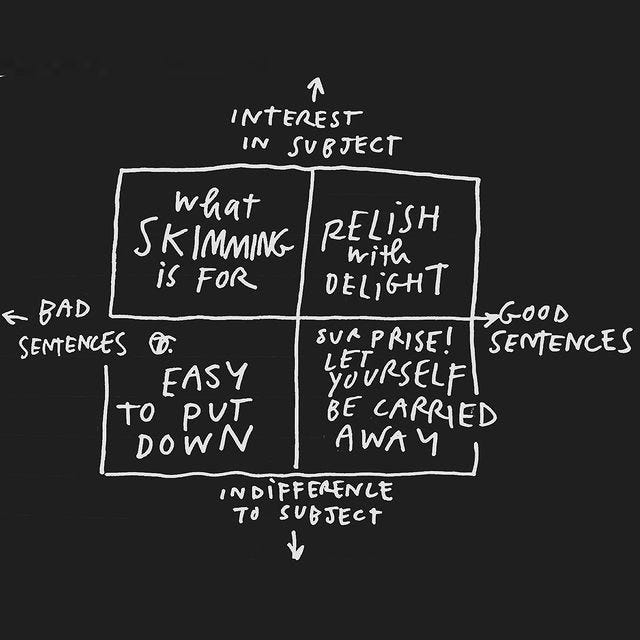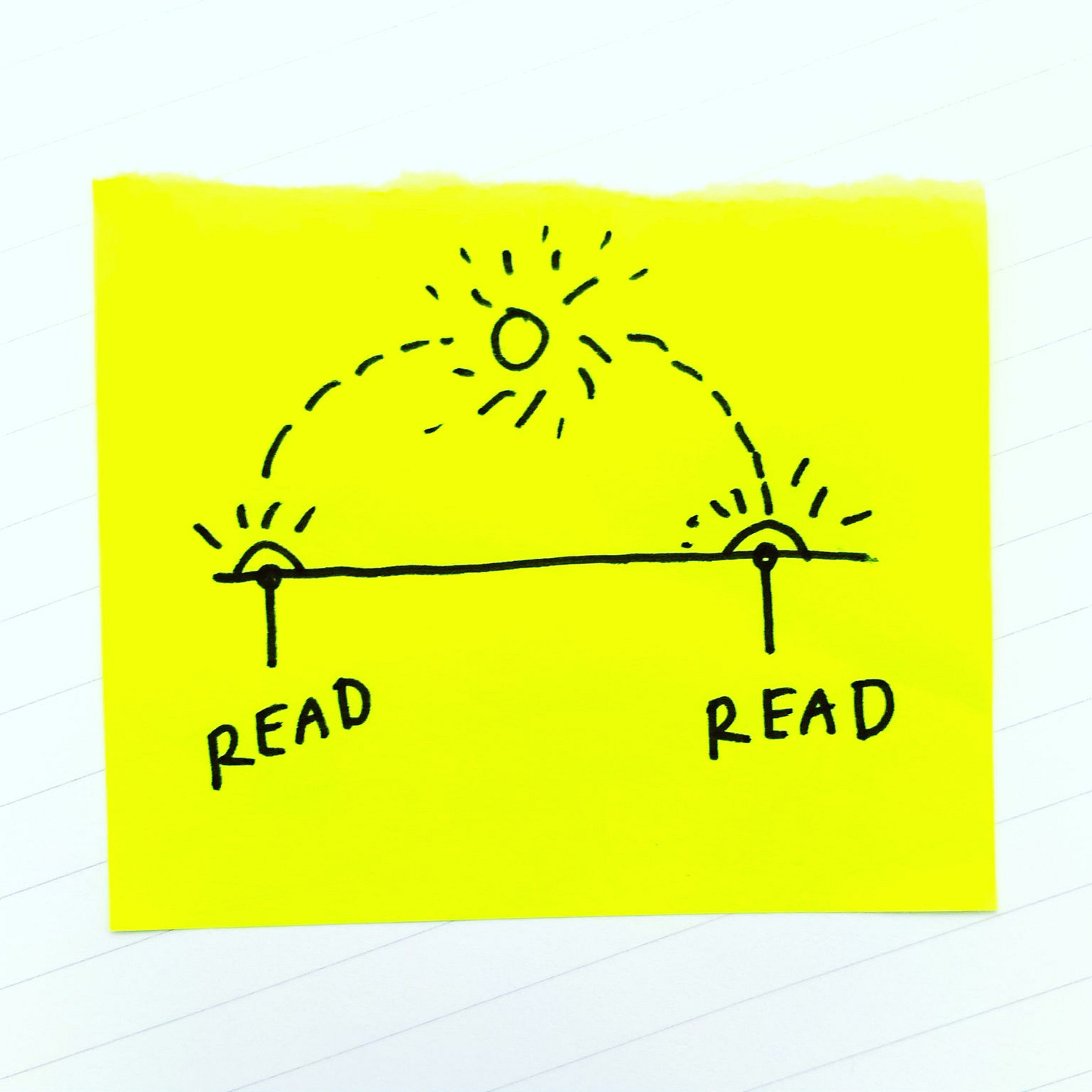Remembering what you want out of books
A few thoughts and diagrams about reading
Hey y’all,
I drew this diagram last week when I found myself reading a writer who seems to be interested in all the things I seem to be interested in, but they write about them in ways that drive me absolutely nuts. This kind of writer is frustrating because they are both annoying and valuable — I can’t ignore them completely because they have things that I want! These are the writers I skim. I skate over their text with a razor blade, scanning for good quotes and sources and links I can steal, scraping their footnotes and bibliographies. (A writer in this category can become a creative nemesis who motivates me to outdo them.)
Then there are writers who write so well that they can make me care about anything. I know I am in good hands and I am very happy to let them carry me off wherever they want to take me. These writers are delightful, but also distracting. At the end of their books, my sense of the world might have expanded, but I’m also a little lost, off my beaten path, and I have to get my map out to find a way back to the road. (It’s easy to love these writers without complication because you don’t share turf.)
On rare occasions, you get a writer who writes beautifully about things you deeply care about. These are the writers you savor. The writers you come back to. (The only thing that can complicate this relationship is jealousy. You’re jealous of their taste and their skill. You’re jealous that you weren’t the one who wrote their books. You want to catch up.)
The bad writers who write about things you don’t care about are a gift because they are easily ignored! (Knowing what you’re not going to read helps you focus on what you are going to read.)
I think a lot about reading because it’s part of my job description. (I often joke that I became a professional writer so I could be a professional reader.) My good writing comes from good reading. Problems of output are often problems of input. If the writing isn’t going well, it’s probably because the reading isn’t going well.
Reading is a great joy to me, but it is also a discipline. Last week I wrote to you about the meaning of discipline and the sense that it is a commitment in time. A quote that was popular in the comments: “Discipline is remembering what you want.”1
“Remembering what you want” is tricky when you pick up a book! (My desire can usually be summarized by a headline I read in the NYTimes Watching newsletter: “I want something brief and wonderful.”) We want different things from different books at different times.
In Dwight Garner’s new memoir about food and reading, The Upstairs Delicatessen, he quotes the biographer Hermione Lee on two kinds of reading: “horizontal” and “vertical.”2 Here’s how she explains them in her 1999 lecture, “Reading in Bed,” collected in Body Parts:
The history of reading contains within it a conflict which recurs over and over again, in different formulations, between what one might call vertical and horizontal reading: the first regulated, supervised, orderly, canonical, and productive, the second unlicensed, private, leisurely, disreputable, promiscuous, and anarchic. The contrast between public and private, licensed and unlicensed, social and solitary reading has never been straightforward…
It’s certainly not straightforward in my life, and I locate this “horizontal” vs. “vertical” conflict within myself.3 There’s what I think I should read, and there’s what I want to read.
I almost always err on the side of Whim and reading recklessly, and paradoxically, it seems to be more productive in the long run.
Keep reading with a 7-day free trial
Subscribe to Austin Kleon to keep reading this post and get 7 days of free access to the full post archives.




